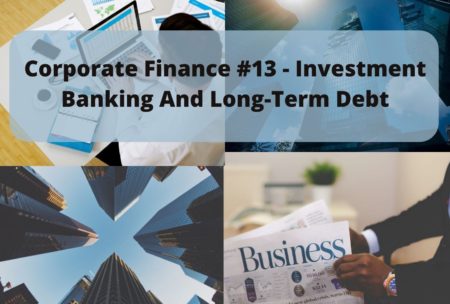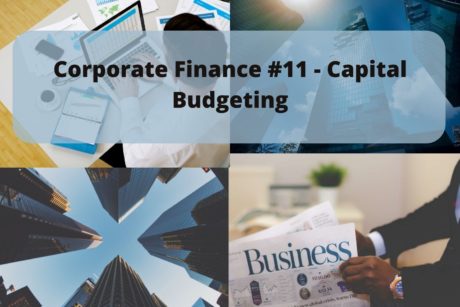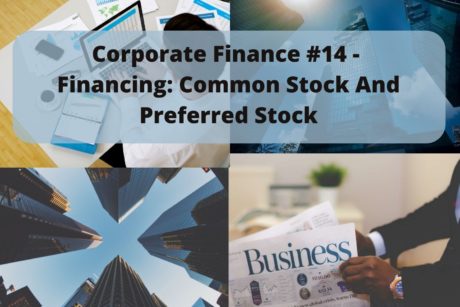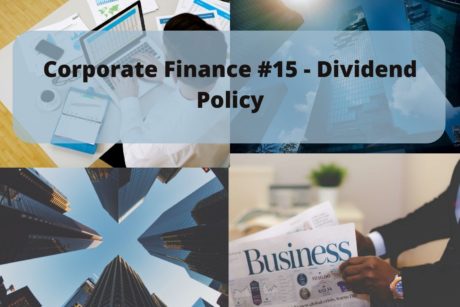Learn about capital markets, investment banking, and long-term debt and lease financing from a certified public accountant. Read more.
Robert (Bob) Steele CPA, CGMA, M.S. Tax, CPI
Buy this course for $199 $10
and keep lifetime access.
Access all courses in our library for only $9/month with All Access Pass
About This Course
Who this course is for:
- Business students
- Business professionals
What you’ll learn:
- Define capital markets
- Describe government securities
- Explain what corporate securities are
- Describe the role exchanges play
- Explain the concept of market efficiency
- List and describe security markets regulations
- Describe the role of investment bankers
- Compare public and private financing
- Explain what long term debt financing is
- Describe bond prices, yields, and bond ratings and how they are used in decision making
Requirements:
- Basic understanding of corporate finance concepts
This course will discuss capital markets, investment banking, and long-term debt and lease financing.
We will include many example problems, both in the format of presentations and Excel worksheet problems. The Excel worksheet presentations will include a downloadable Excel workbook with at least two tabs, one with the answer, the second with a preformatted worksheet that can be completed in a step-by-step process along with the instructional videos.
Types of security markets include money markets and capital markets. Money markets are short-term in nature, with securities that have maturities of one year or less. Capital markets are long-term markets with securities that have maturities greater than one year. Our focus will be on capital markets.
Capital markets help link up businesses that need money to expand with investors who would like to find a good investment for their money.
Investment bankers often act as a middle person between the company issuing securities and the investors, the investment bankers taking on substantial risk as they play their role in the process. Investment bankers design and package securities, make offers, and sell to the public.
Commercial banks differ from investment banks. Commercial banks usually deal with individuals and small companies. They generate revenue from interest on home mortgages and small business loans.
Investment banks take much larger risks. They deal with large companies and high-risk startups. They act as a kind of bridge between the companies and the investors.
Capital intensive industries often need debt financing to grow, the most common form being corporate bonds.
We will compare and contrast debt financing and equity financing, discussing the pros and cons from the standpoint of the corporation and from that of the investor.
Our Promise to You
By the end of this course, you will have learned about capital markets.
10 Day Money Back Guarantee. If you are unsatisfied for any reason, simply contact us and we’ll give you a full refund. No questions asked.
Get started today and learn more about corporate finance.
Course Curriculum
| Section 1 - Capital Markets | |||
| Capital Markets Overview | 00:00:00 | ||
| Government Securities | 00:00:00 | ||
| Corporate Securities | 00:00:00 | ||
| Exchanges | 00:00:00 | ||
| Market Efficiency | 00:00:00 | ||
| Security Markets Regulation | 00:00:00 | ||
| Section 2 - Investment Banking | |||
| Investment Banking Overview | 00:00:00 | ||
| Pricing The Security And Dilution | 00:00:00 | ||
| Public Vs Private Financing | 00:00:00 | ||
| Section 3 - Presentations - Long-Term Debt And Lease Financing | |||
| Long Term Debt And Lease Financing Overview | 00:00:00 | ||
| Bond Prices, Yields, And Ratings | 00:00:00 | ||
| Bond Refunding Decision | 00:00:00 | ||
| Other Forms Of Bond Financing | 00:00:00 | ||
| Debt Pros And Cons | 00:00:00 | ||
| Leasing As A Form Of Debt Financing | 00:00:00 | ||
| Section 4 - Practice Problems | |||
| Bond Coupon Rate, Current Yield, And Yield To Maturity | 00:00:00 | ||
| Bond Coupon Rate, Current Yield, And Yield To Maturity Comparison | 00:00:00 | ||
| Calculate Multiple Bond Value | 00:00:00 | ||
| Debenture That Is Callable Price Calculation | 00:00:00 | ||
| Impact Of Bond Rating Change On Bond Price | 00:00:00 | ||
| Zero Coupon Rate Bond Price Calculation | 00:00:00 | ||
| Zero Coupon Bond Effective Yield To Maturity | 00:00:00 | ||
| Impact Of Inflation On Borrowing | 00:00:00 | ||
| Bond Purchase On Margin And Then Sold | 00:00:00 | ||
| Bond Refunding Decision Problem 1 | 00:00:00 | ||
| Bond Refunding Decision Problem 2 | 00:00:00 | ||
| Capital Lease Vs Operating Lease Determination | 00:00:00 | ||
| Capital Lease Vs Operating Lease Balance Sheet Impact | 00:00:00 | ||
| Section 5 - Excel Problems | |||
| Downloadable Course Worksheets | 00:00:00 | ||
| Bond Coupon Rate, Current Yield, And Yield To Maturity | 00:00:00 | ||
| Bond Coupon Rate, Current Yield, And Yield To Maturity Comparison | 00:00:00 | ||
| Calculate Multiple Bond Value | 00:00:00 | ||
| Debenture That Is Callable Price Calculation | 00:00:00 | ||
| Impact Of Bond Rating Change On Bond Price | 00:00:00 | ||
| Zero Coupon Rate Bond Price Calculations | 00:00:00 | ||
| Zero Coupon Bond Effective Yield To Maturity | 00:00:00 | ||
| Impact Of Inflation On Borrowing | 00:00:00 | ||
| Bond Purchase On Margin And Then Sold | 00:00:00 | ||
| Bond Refinancing Decision Problem 1 | 00:00:00 | ||
| Bond Refinancing Decision Problem 2 | 00:00:00 | ||
| Capital Lease Vs Operating Lease Determination | 00:00:00 | ||
| Capital Lease Vs Operating Lease Balance Sheet Impact | 00:00:00 | ||
| Size Of Lease Payment Calculation | 00:00:00 | ||
About This Course
Who this course is for:
- Business students
- Business professionals
What you’ll learn:
- Define capital markets
- Describe government securities
- Explain what corporate securities are
- Describe the role exchanges play
- Explain the concept of market efficiency
- List and describe security markets regulations
- Describe the role of investment bankers
- Compare public and private financing
- Explain what long term debt financing is
- Describe bond prices, yields, and bond ratings and how they are used in decision making
Requirements:
- Basic understanding of corporate finance concepts
This course will discuss capital markets, investment banking, and long-term debt and lease financing.
We will include many example problems, both in the format of presentations and Excel worksheet problems. The Excel worksheet presentations will include a downloadable Excel workbook with at least two tabs, one with the answer, the second with a preformatted worksheet that can be completed in a step-by-step process along with the instructional videos.
Types of security markets include money markets and capital markets. Money markets are short-term in nature, with securities that have maturities of one year or less. Capital markets are long-term markets with securities that have maturities greater than one year. Our focus will be on capital markets.
Capital markets help link up businesses that need money to expand with investors who would like to find a good investment for their money.
Investment bankers often act as a middle person between the company issuing securities and the investors, the investment bankers taking on substantial risk as they play their role in the process. Investment bankers design and package securities, make offers, and sell to the public.
Commercial banks differ from investment banks. Commercial banks usually deal with individuals and small companies. They generate revenue from interest on home mortgages and small business loans.
Investment banks take much larger risks. They deal with large companies and high-risk startups. They act as a kind of bridge between the companies and the investors.
Capital intensive industries often need debt financing to grow, the most common form being corporate bonds.
We will compare and contrast debt financing and equity financing, discussing the pros and cons from the standpoint of the corporation and from that of the investor.
Our Promise to You
By the end of this course, you will have learned about capital markets.
10 Day Money Back Guarantee. If you are unsatisfied for any reason, simply contact us and we’ll give you a full refund. No questions asked.
Get started today and learn more about corporate finance.
Course Curriculum
| Section 1 - Capital Markets | |||
| Capital Markets Overview | 00:00:00 | ||
| Government Securities | 00:00:00 | ||
| Corporate Securities | 00:00:00 | ||
| Exchanges | 00:00:00 | ||
| Market Efficiency | 00:00:00 | ||
| Security Markets Regulation | 00:00:00 | ||
| Section 2 - Investment Banking | |||
| Investment Banking Overview | 00:00:00 | ||
| Pricing The Security And Dilution | 00:00:00 | ||
| Public Vs Private Financing | 00:00:00 | ||
| Section 3 - Presentations - Long-Term Debt And Lease Financing | |||
| Long Term Debt And Lease Financing Overview | 00:00:00 | ||
| Bond Prices, Yields, And Ratings | 00:00:00 | ||
| Bond Refunding Decision | 00:00:00 | ||
| Other Forms Of Bond Financing | 00:00:00 | ||
| Debt Pros And Cons | 00:00:00 | ||
| Leasing As A Form Of Debt Financing | 00:00:00 | ||
| Section 4 - Practice Problems | |||
| Bond Coupon Rate, Current Yield, And Yield To Maturity | 00:00:00 | ||
| Bond Coupon Rate, Current Yield, And Yield To Maturity Comparison | 00:00:00 | ||
| Calculate Multiple Bond Value | 00:00:00 | ||
| Debenture That Is Callable Price Calculation | 00:00:00 | ||
| Impact Of Bond Rating Change On Bond Price | 00:00:00 | ||
| Zero Coupon Rate Bond Price Calculation | 00:00:00 | ||
| Zero Coupon Bond Effective Yield To Maturity | 00:00:00 | ||
| Impact Of Inflation On Borrowing | 00:00:00 | ||
| Bond Purchase On Margin And Then Sold | 00:00:00 | ||
| Bond Refunding Decision Problem 1 | 00:00:00 | ||
| Bond Refunding Decision Problem 2 | 00:00:00 | ||
| Capital Lease Vs Operating Lease Determination | 00:00:00 | ||
| Capital Lease Vs Operating Lease Balance Sheet Impact | 00:00:00 | ||
| Section 5 - Excel Problems | |||
| Downloadable Course Worksheets | 00:00:00 | ||
| Bond Coupon Rate, Current Yield, And Yield To Maturity | 00:00:00 | ||
| Bond Coupon Rate, Current Yield, And Yield To Maturity Comparison | 00:00:00 | ||
| Calculate Multiple Bond Value | 00:00:00 | ||
| Debenture That Is Callable Price Calculation | 00:00:00 | ||
| Impact Of Bond Rating Change On Bond Price | 00:00:00 | ||
| Zero Coupon Rate Bond Price Calculations | 00:00:00 | ||
| Zero Coupon Bond Effective Yield To Maturity | 00:00:00 | ||
| Impact Of Inflation On Borrowing | 00:00:00 | ||
| Bond Purchase On Margin And Then Sold | 00:00:00 | ||
| Bond Refinancing Decision Problem 1 | 00:00:00 | ||
| Bond Refinancing Decision Problem 2 | 00:00:00 | ||
| Capital Lease Vs Operating Lease Determination | 00:00:00 | ||
| Capital Lease Vs Operating Lease Balance Sheet Impact | 00:00:00 | ||
| Size Of Lease Payment Calculation | 00:00:00 | ||




